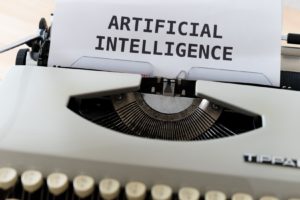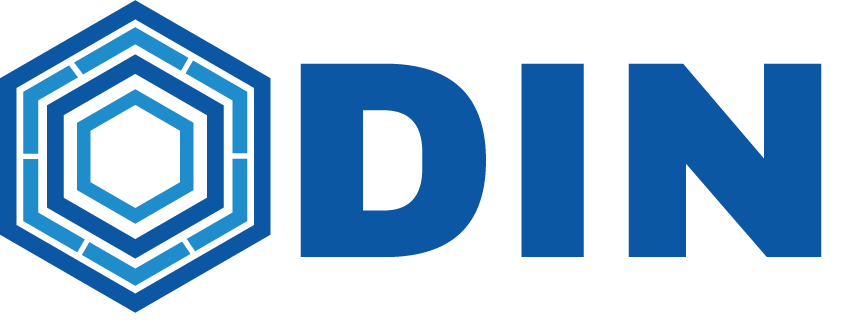Technology Is Now An "IS"
Covid has changed the way we do things. Can you imagine a world where banking can only be initiated at your local branch, where food is ordered solely by telephone, or where all shopping occurrs in brick-and-mortar retail shops? This world may have existed 10 to 15 years ago, but post covid-19, it can no longer be assumed that society will revert back to traditional methods and not assume more costly and efficient processes.
Covid 19 changed us all. We all now have a greater appetite for convenience. Technology has altered processes in every walk of life, from the way we purchase goods to the way conduct business.
Paradoxically, family law has been inclined resistant to the incursion of technology and is only now beginning to explore the benefits and synergies made possible by the use of new products and software. Fortunately, we are currently witnessing noteworthy breakthroughs in the field of legal technology.

ADR financial professionals play a prominent role while advising clients on the financial elements of the separation process. It stands to reason that they should take the lead on the aspect of the process that collects and verifies all of the financial documents. Using ODR Technologies, financial professionals can take ownership of the process, directing clients from the beginning of the separation process all the way through to the creation of their separation agreements. This may change the nature and scope of their work as they may now intially lead the client and then connect them with other professionals rather than only joining an existing client file.
The Impact of ODR Technologies on ADR Processes
The emergence of dispute resolution technologies within the legal realm presents incredible opportunities for ADR professionals. Dispute Resolution Technology (ODR) encompasses all software, products, methods, and platforms that actively contribute to the minimization of conflict between the parties. More than ever, the ADR community is understanding the practical impact that ODR technology can have on the conflict itself.
Evidence suggests that clients who better comprehend their negotiation options and financial situation, are involved in less hostile negotiations and find it easier to reach a compromise when at an impasse. There are a number of existing family law dispute resolution Technologies that are changing the ways separating couples are understanding their negotitation options, their finances, and their avialable solutions. Such ODR technologies tools can help ADR professionals provide their clients with an empowering level of negotiation fluency.

Financial Disclosure is a cloud-based system that analyzes financial situations, manages disclosure documents and simplifies the review and verification process. Clients now complete the financial disclosure process in an average of five to 15 days, down from a typical 50-90 day period.
Financial Disclosure as an ODR Tool
ODR Technologies used in financial disclosure have been shown to minimize early conflict. Speedy financial disclosure has the potential to level the playing field when the financial disparity between the parties often creates a power imbalance. When clients take the industry average 90 days to get through the financial disclosure they are viewing the information in a piecemeal fashion, and often have difficulty understanding the whole picture. They are also more likely to jump ahead to the negotiation stage without taking time to review the details.
In situations where the disclosure is completed in days, the clients have all of the information accessible at once, then have weeks to digest and analyze everything before moving ahead with the negotiation. The acceleration of the disclosure process provides a significant boost to parties that are mismatched in their financial acumen and mitigates much of the disputes inherent in financial disclosure.
The Power of Visualizations
Financial visualization software is also being utilized to meaningfully minimize disputes. Spreadsheets and balance sheets are overwhelming, making it difficult for clients to comprehend the impact of each potential pathway. Conversely, visualization software breaks down the complexity of numbers and presents alternatives in a simple, easy to grasp manner. These apps provide real-time insights that can help clients better understand the options available to them.
In cases where there is a particularly large discrepancy in financial knowledge, visualizations also act as an equalizer that can negate power imbalances. ADR professionals can now refer to visual models to quickly demonstrate how the negotiation will be affected by the choices at hand, and present suggestions based on pre-determined client preferences and real-time insights. By empowering clients to bridge knowledge gaps, the ADR professional reduces hostility and encourages clients to quickly and peaceably resolve their dispute. Visualizations also offer an opportunity for clients to step away from the negotiation for a period and assess the options without requiring additional professional support. It is far easier for a client to compare visual options on their own as opposed to handling a variety of calculations and spreadsheet scenarios.
Virtual Negotiation Rooms
Assisted by the massive uptake of virtual mediation, ODR is now implementing virtual Negotiation Rooms. These take the form of a cloud workspaces that allow ADR Professionals to collaborate better, adjust assets and debts in real-time and virtually create scenarios for the distribution of items that can later be implemented into the separation agreement. These tools typically come with the added functionality of tethering notional tax, real estate fees, and capital gains expenses to the requisite asset that generates the liability. This means that every adjustment to the asset will automatically make a corresponding modification to the tax/fee.
These tools also allow for the instant creation of joint Net Family Property Statements, and in turn avoiding the reviewing and editing of multiple NFP versions. Negotiation Rooms enable the professional to collaborate directly with the client and accelerate the dispute resolution process by allowing multiple proposals to be generated and reviewed in a single sitting. It also allows for the immediate consolidation of assets and debts in a way that both parties can understand, empowering clients with additional knowledge that can resolve the dispute.
As clients demand better service, more efficient processes and greater transparency, ADR professionals are faced both with the need to adapt and, also, an unprecedented opportunity to capture a larger foothold in the family law market. By implementing state of the art technologies, processes, and platforms, ADR professionals can redefine their role in family law and lead clients through a more efficient, less acrimonious, and cost-effective dispute resolution process.







